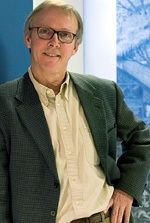 |
| UCSF's James Wells |
Celgene is anteing $25 million to take the first seat at the players' table for a new academic research consortium that will put their combined antibody engineering platform to work finding next-gen anticancer therapies with commercial potential.
Celgene ($CELG) is paying for an option to in-license antibodies from the library now being filled by the Recombinant Antibody Network--RAN--which was created by researchers at UC San Francisco, the University of Toronto and the University of Chicago. UC San Francisco's James Wells co-founded the group with Sachdev Sidhu and Anthony Kossiakoff, two Genentech vets from the protein engineering group.
Together, they've begun operating an automated antibody assembly factory, systematizing the process with the goal of targeting the full range of cell-surface protein targets that control cancer as well as other diseases.
"In the future, we envision that we will be able to precisely target cancer cells at the molecular level, which will provide better therapies for patients," says Sidhu.
In turning to Celgene to come in first, the academics gain a prolific, high-profile player which has long loved to populate its pipeline through new deals. Celgene's recent deal to buy Receptos ($RCPT) and its late-stage autoimmune drug for $7.2 billion capped a deal spree that included one of the largest upfronts in industry history--the $710 million upfront Nogra pact. And CEO Bob Hugin says that the wheeling and dealing is far from over.
The big idea at RAN is to replace the hit-and-miss discovery of antibodies--a huge field in drug development--with a more precise, industrial approach that "generates recombinant antibodies from cloned synthetic genes that are selected for high performance."
Now that Celgene has stepped in, you can expect more players in the huge oncology field to follow the same trail.
- here's the release